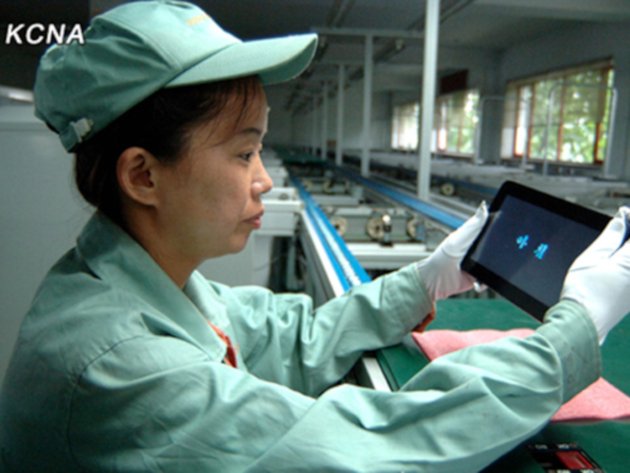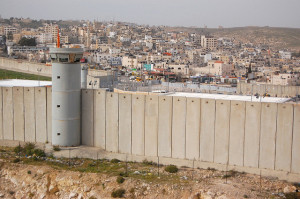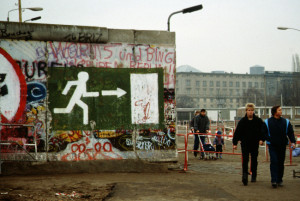by John Feffer
As an ethnically homogenous and already divided nation, Korea might seem to be immune from all the fragmentation that seems to be happening around the world today.
Far from the Korean peninsula, the European Union is negotiating the British exit and facing a possible withdrawal by the Spanish region of Catalonia. The Middle East is witnessing the breakdown of Yemen, the civil war in Libya, the continued crack-up of Syria, and the declaration of independence of Kurdistan in Iraq. Secessionist movements threaten the territorial integrity of Nigeria and Brazil. The forced exodus of the Rohingya is only one of the conflicts that put Myanmar at risk.
The Korean peninsula, meanwhile, is already divided, and no one talks about further divisions. Rather, Koreans talk about reunification. Like Germany and, until recently Yemen, the two Koreas hope to buck the trend toward disintegration. Nobody thinks that this will happen tomorrow. But they imagine that reunification will happen some day in the future.
The two Koreas, however, face the same forces that are threatening to tear apart other countries.
Consider, for example, the impact of economic globalization. All over the world, the concentration of wealth made possible by the removal of barriers to the flow of capital has put enormous strain on societies. Tensions within the European Union—particularly between the north and south but also inside member states—have been aggravated by the polarization of wealth. Many wealthier Catalans don’t want to subsidize the residents of poorer regions of Spain, just as many wealthier Germans don’t want to the EU to subsidize the poorer regions of Europe.
This same dynamic of economic globalization has widened the gulf between the two Koreas. In the early 1970s, North and South Korea were roughly equal in terms of economic output. When it opted to become integrated in the global economy in the 1970s, South Korea took off. Today, the gulf between the two Koreas is enormous. The South Korean economy is approximately 83 times the size of the North Korean economy. That’s basically the same economic gap as the one between Germany and Ghana.
This huge difference in economic performance has produced a similar decline in feelings of solidarity between the two Koreas. Although support for dialogue with North Korea is quite high at the moment in South Korea, there’s considerably less support for paying more in taxes to facilitate reunification, particularly among the younger generation. According to a 2015 report by the Asan Institute, 86 percent of South Koreans believe reunification to be necessary but 43 percent opposed reunification if it involved economic recession. Meanwhile, 48 percent of South Koreans supported a reunification tax, but the figure was much lower for those in their twenties: only 34 percent.
Then there’s the issue of technology. The Internet has linked people together across huge distances through email and social media platforms like Facebook. But at the same time, the Internet has helped to erode the social fabric within countries. As people gravitate toward their own interest groups, they have less and less tolerance for interaction or cooperation with people who don’t share their beliefs. The recent election in the United States has demonstrated how social media – its manipulation by both domestic and foreign actors – helped to polarize the electorate and produce a victory for Donald Trump.
On the Korean peninsula, the technology divide is stark. Although North Korea has developed a considerable expertise in software and has produced its own smart phone and tablet, the average person doesn’t have access to the Internet or any global social media platforms. Compare this with South Korea, one of the most wired and socially connected countries in the world. As South Koreans connect with others around the world who share their interests in music, film, politics, and business, they are building up a thick network of global connections – with everyone except North Koreans. And so the two countries move even further apart.
Finally, there is the political divide between north and south. When the two countries were relatively equal economically, they also had very similar political systems: autocrats like Kim Il Sung and Park Chung Hee who used the power of the state to rapidly develop their societies. The North Korean political system hasn’t changed appreciably since the 1970s. But South Korea has become a vibrant democracy with many civil society organizations.
Elsewhere in the world, greater political participation has put great stress on nation-states. The Brexit vote, the referenda in Catalonia and Kurdistan, the Arab Spring: all of these have expressions of popular sovereignty ultimately tested the viability of unitary states.
Although it has a couple regional tensions, South Korea doesn’t face any secession movements. North Korea, meanwhile, doesn’t face any popular uprisings. But reunification would have been a great deal easier if imposed from the top during the 1970s by two autocratic regimes. Now that South Korea is a democracy, reunification from the southern side must be a matter of popular consent. Even if North Korea would suddenly become a democracy, the people there would have very different ideas about the terms of reunification given their experience of the last 75 years. So, politics too helps to push North and South further apart.
Economic globalization, communications technology, and democratization: these three forces are pushing apart the two Koreas just as they are fragmenting nation-states and transnational entities like the European Union. Whereas these forces are breaking apart long-existing structures in other parts of the world, they are merely strengthening the status quo of division on the Korean peninsula.
Republished, with permission, from Hankyoreh. Photo: North Korean tablet.





